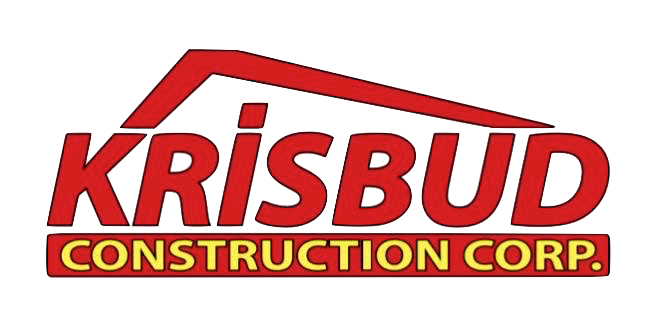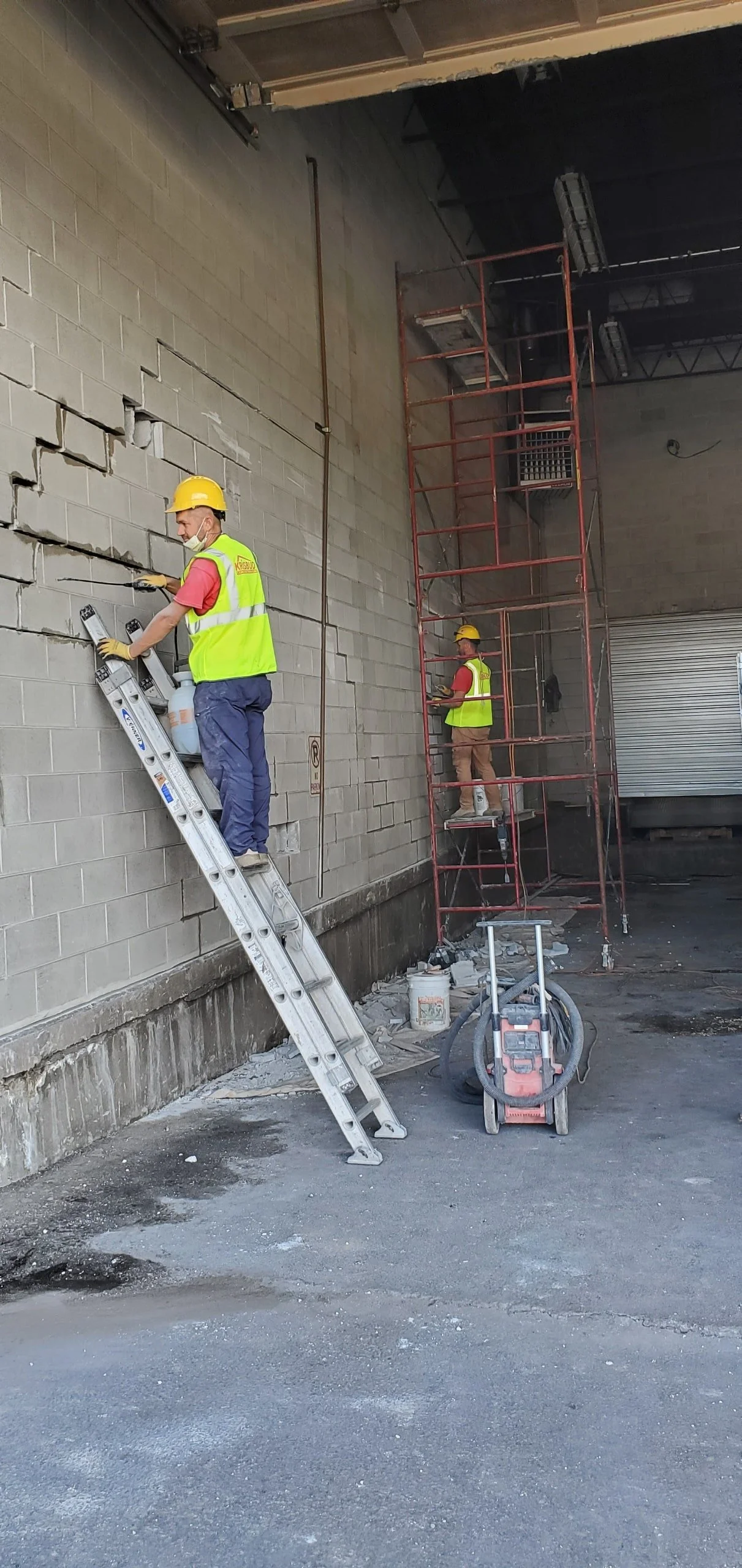Chicago Commercial Masonry Guide: Code Compliance and Preventative Maintenance for Property Owners
How to Keep Your Chicago Commercial Masonry Compliant and Well-Maintained
If you own a commercial building in Chicago, chances are masonry plays a major role in how your property was built—and how well it holds up. From exterior brick walls and concrete block structures to ornate stone facades, masonry is more than just a design feature. It’s a functional, load-bearing element that protects your building from the elements, supports key architectural systems, and helps define its long-term value.
And like any part of a structure that’s been laid, sealed, and weathered, masonry needs attention. Without proper maintenance, even the most durable materials begin to show wear—through cracks, discoloration, deteriorating mortar, and movement in the walls. Small flaws don’t stay small for long.
This Chicago commercial masonry guide walks property owners through the most important things to know—from local building ordinances and inspection timelines to smart, preventative repair strategies. Whether you’re budgeting for your next masonry project or simply trying to avoid code violations, you’ll find practical insights here.
While it may be tempting to treat masonry construction as “set it and forget it,” Chicago’s climate doesn’t play nice. Between driving rain, snow, heatwaves, and the occasional mid-spring hail surprise, your building envelope needs regular care—or it will force your hand when the next inspection rolls around.
The good news? With the right masonry maintenance plan in place—and a Chicago commercial masonry company that knows their way around both concrete blocks and local code requirements—you can extend your structure’s life and preserve its value, without last-minute stress.
What Counts as Commercial Masonry in Chicago?
Let’s keep it simple. Commercial masonry refers to any structural or architectural component built from brick, stone, concrete blocks, or glass block, set in mortar, and designed to endure. You’ll find it in nearly every corner of Chicago’s commercial landscape—office buildings, retail storefronts, multi-unit properties, mixed-use developments, and more.
In fact, it’s the defining texture of the city’s built environment. Whether you’re standing beneath a limestone cornice or checking for movement in a red masonry wall, you’re surrounded by the craftsmanship of generations of masons. The challenge today? Preserving that craft while meeting modern codes and expectations.
Key Code Requirements for Chicago Masonry Work
Chicago didn’t just wake up one day and decide it had strict building codes. Its past—shaped by the Great Chicago Fire, and reinforced by more than a century of lessons in Chicago masonry restoration—demands it.
Here’s what property owners need to know:
Façade Ordinance: Any structure over 80 feet tall must undergo formal inspections by a licensed professional (think engineers or architects), including hands-on reviews of critical areas.
Visual Assessments: Even buildings under 80 feet may be subject to routine inspections to identify visible deterioration—cracked units, shifting walls, deteriorated mortar, or rusting lintels.
Permits & Licensing: Any structural masonry work—including tuckpointing, replacing brick, or adjusting facade elements—requires proper permitting and a licensed contractor.
Violating these rules doesn’t just invite fines—it can trigger mandated emergency repairs, legal action, and worse: a reputation for neglect that could follow the property well into its next project cycle.
Preventative Maintenance: The Smartest Masonry Strategy
Waiting until masonry fails isn’t a maintenance plan—it’s a liability. A proactive schedule of assessments and light intervention protects not only your building’s durability, but also your budget.
Smart preventative work may include:
Commercial tuckpointing for mortar joints before they break down
Resealing coping stones and parapet caps
Inspecting chimneys, cornices, and fireplaces for movement or moisture
Replacing cracked or spalled bricks
Applying breathable waterproofing to exposed walls
Taken together, these steps help maintain your building envelope, reduce water infiltration, and keep tenants happy—all while staying one step ahead of the city’s inspection cycle. It’s like routine dental care, but for your facade—and way more expensive if you skip it.
Real-World Examples of Common Failures
Here are a few examples, drawn straight from real masonry projects across Chicago:
A mid-sized commercial building in West Town ignored a parapet wall crack. After a wet winter and a rough thaw, causing a structural shift in the wall and greatly increasing the repair cost.
A property owner near Uptown skipped tuckpointing for five years. When their building went up for sale, the buyer’s inspector flagged 800 linear feet of deteriorated mortar.
In both cases, the work required could have been handled for a fraction of the cost, if caught early. That’s the magic of preventative maintenance—you spend less, worry less, and maintain control over your project timeline.
Working with the Right Masonry Professionals
Chicago doesn’t make it easy for just anyone to start repairing brick and stone. That’s a good thing.
A true commercial masonry contractor in Chicago isn’t just someone with tools—they’re someone who understands local ordinances, material compatibility, historic preservation standards, labor safety, and what it takes to complete a job without disrupting the tenants, businesses, or operations inside the building.
At Krisbud Construction, we work with property managers, owners, and contractors across the city to deliver compliant, high-quality masonry work. Whether we’re restoring a limestone entryway, repairing structural walls, or managing a full façade rebuild, our focus is on craftsmanship, code, and clear communication.
Avoiding the High Cost of Deferred Repairs
When masonry problems are left unchecked, they don’t just get worse—they get expensive.
What starts as a small crack in a parapet can become a failed wall, triggering emergency scaffolding, permits, and a tight compliance deadline you didn’t plan for.
The ripple effects?
Disrupted leasing cycles
Damaged interior finishes
Increased insurance premiums
Budget strain that could have been avoided with routine care
Instead of reacting under pressure, build a capital improvement plan that includes regular masonry inspections. Just as you wouldn’t ignore a fire alarm, don’t wait for the structure to tell you something’s wrong. Plan now, and you stay in control.
Your Next Step: Get a Masonry Assessment from Krisbud Construction
No two Chicago buildings are the same—but every one of them benefits from knowing where it stands.
We offer full site assessments, compliance checks, and long-term maintenance planning for commercial masonry structures across Illinois. If repairs are needed, we’ll provide a roadmap. If they aren’t, we’ll tell you that too.
👉 Contact Krisbud Construction to schedule your masonry consultation. Let’s protect your building, stay ahead of code, and preserve the beauty and value of your investment for the long haul.

